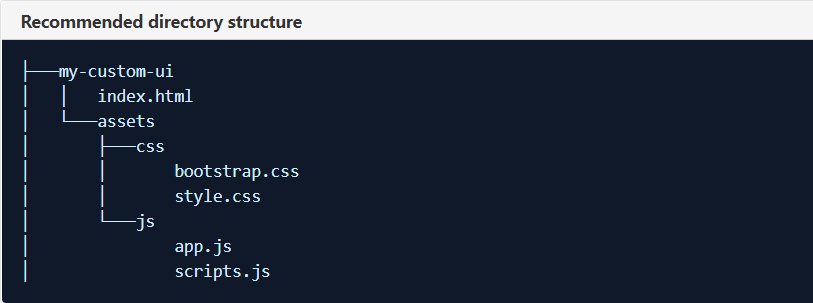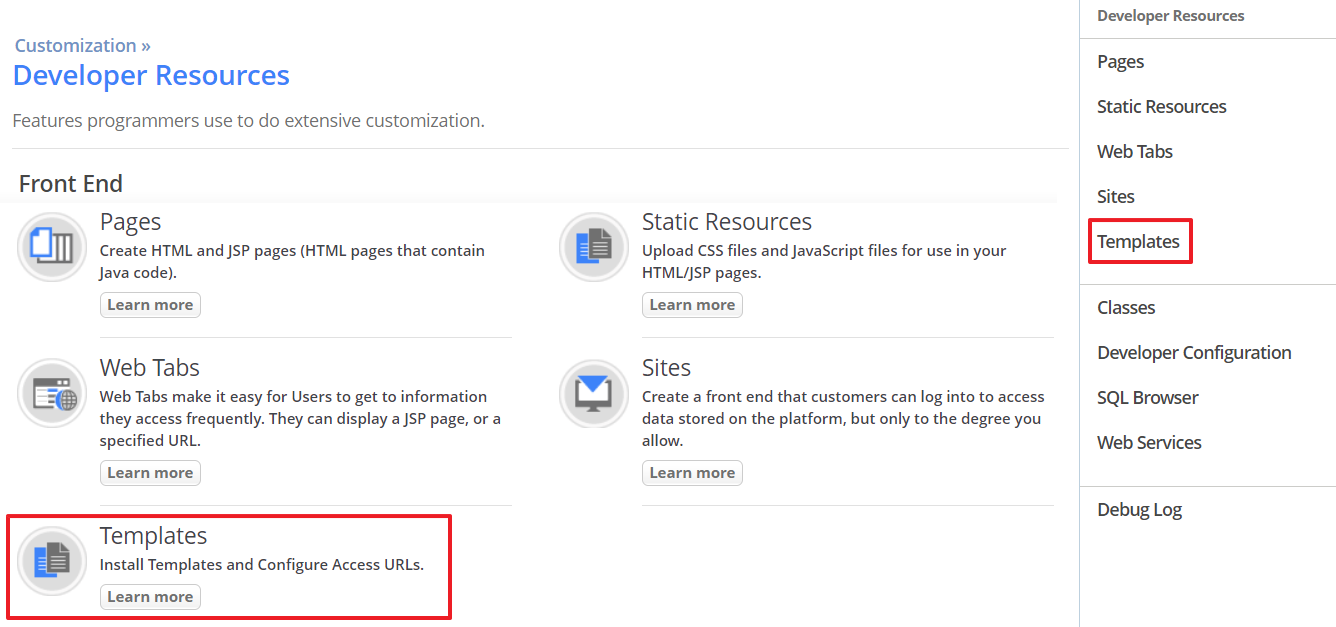How to Create a Custom User Interface (CUI)
Overview
The Templates feature allows you to upload a template designed by a designer to the AgileApps platform. You can use this template to customize the user interface for applications using different Access URLs.
Why do we need this feature?
In the current approach, when you design a template, you have to put this template.zip file inside the Tomcat > webapps folder to access it. The problem with this approach is that a cloud customer does not have access permissions to our system resources. With this new approach, the customer uploads a template to our AgileApps platform like any other document and generates an Access URL. When the customer opens this Access URL, the template uploaded to the AgileApps platform is rendered in run time for the selected application.
Prerequisites
To view this Templates feature, you should meet the following prerequisites:
- In the Manage Tenant Capabilities page for a tenant, the Developer Tools option should be enabled. For more information, see Tenant Capabilities.
- Under Access Management > Access Profiles > Administrative Permissions > Development Controls, the Use Development Features option should be enabled.
- In the Configure Service Settings > Template Configuration section, provide the list of file extensions that you want to support for template installation. This allows the administrator to allow only some file extensions template installation. For more information, see Service Configuration.
- The recommended file structure for packaging the custom user interface is shown in the following image:

- Further explanation of this folder structure is as follows:
- my-custom-ui: This is the root folder and it always exists.
- index.html: This file is the entry file and is mandatory for successful installation of the template.
- template-details.json: When you install the template in the AgileApps platform, the template name and the version is read from this internal JSON file. If this file is missing, then the template installation fails. This file is available inside the template.zip file and has the following file structure:
{ name: '{template unique name}', version: '{major.minor}' }
Basic Flow
Creating a new custom template for your AgileApps application involves the following steps:
Installing the Template
- 1. Go to Settings > Customization > Developer Resources, and select Templates from the menu as shown in the following image:
- 3. In the Install Template page, click Choose File and select the zip file for your template. Only .zip file format is supported. Other compression formats like RAR is not supported.
- The template zip file has the following considerations for the characters used in the zip file:
- The zip file name should only contain alphanumeric characters (a-z, A-Z, 0-9), hyphen(-), dot(.), or an underscore(_).
- The folder name inside the zip file should only contain alphanumeric characters (a-z, A-Z, 0-9), hyphen(-), or dot(.), or an underscore (_). Also, the folder name cannot start with a dot(.) symbol.
- The file name inside the zip file should only contain alphanumeric characters (a-z, A-Z, 0-9), hyphen(-), or dot(.), or an underscore (_).
- The template version inside the template-details.json file should be in {major.minor} format. For example, 1.2.
- The template name inside the template-details.json file should only contain alphanumeric characters (a-z, A-Z, 0-9), hyphen(-), or dot(.), or an underscore (_). Also, it should start with an alphabet and end with an alphanumeric character.
- The template zip file has the following considerations for the characters used in the zip file:
- 4. Click Next and then click Install. On successful installation, you will see a message on-screen conveying the same.
- 5. To update an existing template, follow the same procedure as above and click Install to overwrite the existing template. The system provides you a warning message with an option to download the existing template before you overwrite.
- This concludes the installation of template.


